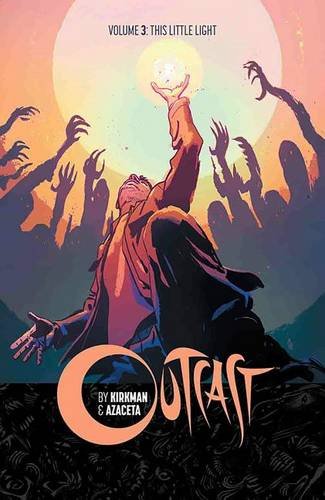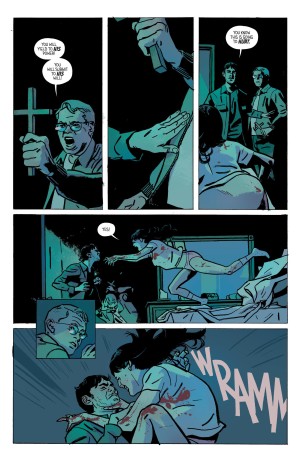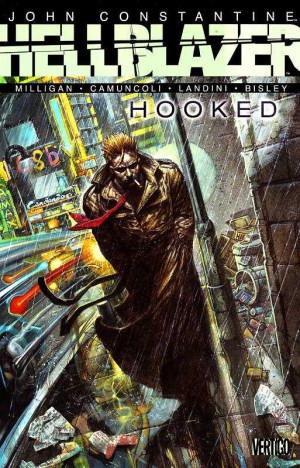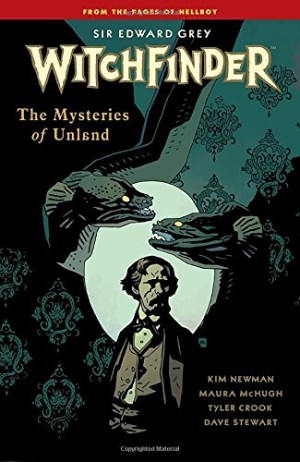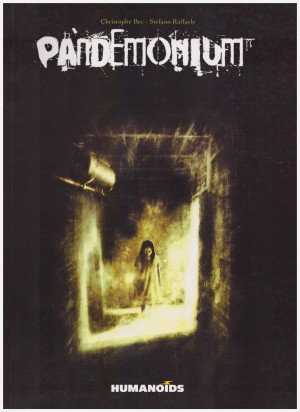Review by Karl Verhoven
We’re now into the third volume of Outcast, and the established tone has prioritised mood and drama spliced with the occasional action scene, with the plot moving forward at a glacial pace. The title refers to Kyle Barnes, his status arising from tragic circumstances as yet not revealed involving his now estranged wife and child. Barnes somehow senses the presence of demons disguised as humans in the community, and his blood can expel them.
As if to dispel the repetitious ennui that settled over A Vast and Unending Ruin, Robert Kirkman jumps straight into a violent and suspenseful exorcism. “We are done talking to you. You are a tool for use, nothing more. Do you talk to your garden trowel, your fork, your knife?” explains the helpful demon-possessed woman. There’s more drama, more action and more revelations over the opening two chapters than in the previous two books combined, and for those who have invested in the cast this will be very welcome. Those who haven’t, will appreciate the new faster-paced storytelling continuing throughout the book, including a novel second exorcism.
The combination of Paul Azaceta’s straightforward art and Elizabeth Breitweiser’s simple, but subtly toned colouring is extremely effective in sustaining the glum mood of constant darkness. If it needed repeating, both here and elsewhere Azaceta is a fantastic artist. Outcast presents no superheroes or flights of fancy to hide artistic deficiencies, and Azaceta’s day to day scenes and interactions are well composed and convincing. The styles differ, but he equals the subtle visual characterisation that Sean Phillips regularly achieved on Criminal.
Confrontation and disbelief run all the way through This Little Light, as several matters that have been concealed for reasons both benign and malign emerge, including how Barnes and his family separated. When Kirkman returns to character based drama in the third chapter it’s with a fantastically paced sequence that really twists the knife, and there’s not a chapter that doesn’t end with a beauty of a cliffhanger. More controversially, Kirkman opens a discussion about God, and what he may or may not be like. It may prove to be in passing, or may be fundamental to the series.
The first two books indulged in languidly setting the scene, as if Kirkman forgot he was writing comics, not TV drama, but This Little Light shows him upping his game considerably. Outcast is now a TV show, and the graphic novels may yet stand alongside his longer established series. Under Devil’s Wing is next, or alternatively, the entire series is collected as Outcast: Complete Compendium.
